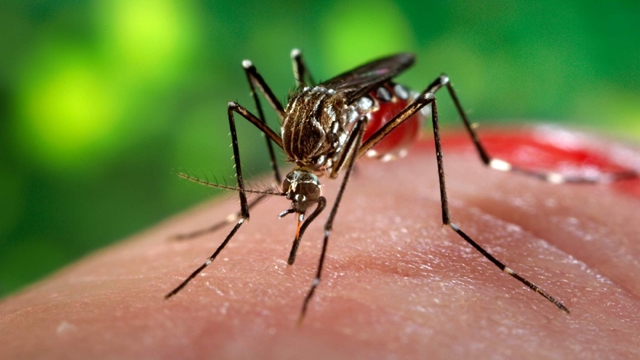FT Online
Published:2019-07-25 21:31:39 BdST
Pressure builds on city hospitals treating dengue patients
Pressure built on hospitals, clinics and doctors in handling the ever-growing number of dengue patients in the city in recent days.
During visits to some public and private hospitals and clinics on Wednesday it was found that most of them were overcrowded with dengue patients.
Patients and their relatives, on the other hand, were in dire straits looking for blood and platelets required for treatment of their near and dear ones.
According to a report of the Health Emergency Operation Centre and Control Room of Directorate General of Health Services (DGHS), 560 patients were admitted to hospital in the past 24 hours until Wednesday. With the new cases, the total number of dengue patients reached 7,000 until July 24.
However, the actual number of dengue-affected people could be more than the DGHS claimed.
A good number of dengue-affected patients were found rushing to different city hospitals on the day.
The hospital authorities and doctors were also seen busy dealing with the increasing number of dengue-affected people of different ages.
Of the hospitals, the Dhaka Medical College and Hospital (DMCH) alone received the highest 145 patients.
Rickshaw-puller Md Rafique, among other patients, was seen at the outdoor of DMCH outdoor waiting for treatment of his 11-year old dengue-affected daughter.
An official at the DMCH said that the majority of the patients rushing to the hospital were affected by dengue.
He said the authorities were trying to deal with the increasing number of dengue patients.
The same situation was found at the BIRDEM General Hospital in the city. The hospital sources said people were coming mostly with fever over the last few weeks.
Hospital authorities consider admission of patents to hospital after necessary diagnosis and tests confirm that they are affected with dengue.
Assistant director of BSMMU Md Shofiqul Islam told the FE that most patients were complaining of possible dengue cases at the hospital outdoor. Until Wednesday there were 46 patients at the hospital.
He said the BSMMU suggested that people take homecare during the fever unless patients' condition goes out of control.
He added that the hospital already planned to keep 40 more seats ready for dengue patients next month, if the dengue situation worsens further.
He, however, claimed the dengue condition in the country was still under the government's control and hospitals across country including those in the city could manage to address the situation.
He, however, observed that around 95 per cent of dengue cases could be treated without getting admission to hospital.
According to an emergency medical officer at Shamarita Hospital in the city, every 15 out of a total of 20 patients coming here are dengue patients. There are 240 seats in the hospital, of which 155 are dengue patients.
A medical staffer said that they were receiving calls from patients for admission but they could not accommodate them as there is no seat.
According to the medical officer, Shamarita Hospital does not have any blood bank or blood transfusion facility. In case of emergency, they collect it from other blood banks with which they have agreements. But sometimes, the patients have to pay exorbitant prices for the platelets, even Tk 20,000 which is unfair, he added.
The Shamarita doctor said they try to control the platelet from the very beginning so the patients do not need to take blood. It depends on efficiency of the professor who is handling the dengue case, he added.
Another emergency medical officer of Green Life Hospital said that they received on an average 50 dengue patients daily. They even received the highest 84 patients in a day. There are 400 seats but 80 per cent of them are occupied with dengue patients, he added.
He said most of the patients come from Green Road and Dhanmondi areas.
Among the private hospitals, the highest number of patients got admitted to Central Hospital. Two medical officers were attending patients at the emergency.
Talking to the FE, they said that in three hours they received 15 patients. But they could not admit all the patients as there was a seat constraint.
Most of the dengue patients come from Dhanmondi, Green Road, Mirpur, Keraniganj, Bangshal, Lalbagh and other parts of the old town.
There are 240 seats including reserved beds. Besides, there are eight beds at the emergency. The Central Hospital does not have any blood bank or blood transfusion system.
Only four hospitals have platelet aphresis capacity in the city-Square, Labaid, Apollo and Universal Medical Hospital. This procedure is expensive. But normal platelet transfusion is not that much expensive, the doctor added.
They said the state of patients becomes critical, if they come five/six days after being affected. The situation gets worse if the platelet count falls below 50,000 or there is bleeding manifestation. The patients must test for dengue, whenever they have fever with bad headache, muscle pain, pain in eye, hemorrage, hepatitis, carditis, shock.
On the other hand, a duty manager at the BRB Hospital in the city said they had restrictions on talking to media as they were giving dengue-related information to the DG health every morning.
Regarding any kind of pressure from the DG health for which they cannot give any information on dengue, he said they had not allowed them to talk to the media even.
An old dengue patient who suffered a second attack along with three other family members for the first time told the FE that the platelet count of his mother fell below 11,000.
The hospitals maintain high confidentiality in disclosing treatment-related expenses and information.
Unauthorized use or reproduction of The Finance Today content for commercial purposes is strictly prohibited.


